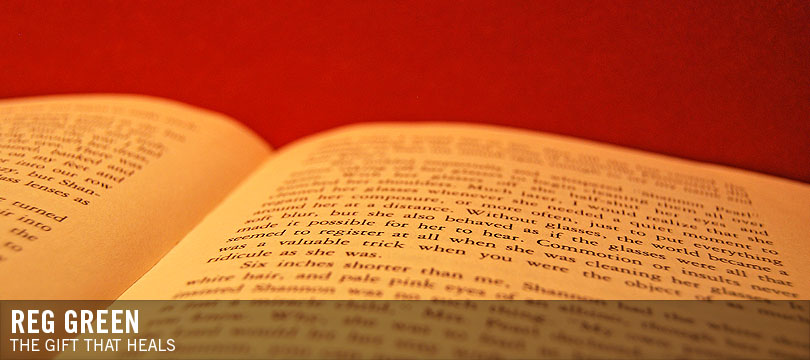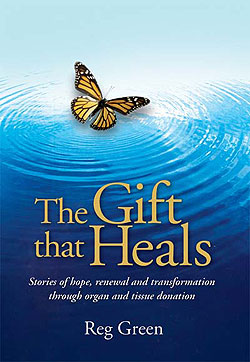

iUniverse was founded in October 1999 and makes it possible for writers to achieve the dream of becoming a published author. With leadership that brings expertise in publishing, sales and marketing and technology, iUniverse offers a unique mix of self-publishing products and services and the skills of a professional team dedicated to enabling authors to see their books in print. By offering a variety of affordable publishing, editorial and marketing services, iUniverse helps authors get their manuscripts off their desks and into the marketplace.
website: www.iuniverse.com
 Reg Green drove lazily along a road in southern Italy, enjoying a well-earned family vacation. His wife, Maggie, was beside him in the passenger seat, and dozing in the back seat were their six-year-old son, Nicholas, and their four-year-old daughter, Eleanor. When a car pulled up and stayed close behind them, Reg felt a tremor of anxiety. Then, the car pulled alongside of them and he heard menacing shouts, demanding that they stop. Confused and anxious, he accelerated. The other car sped alongside them, until a bullet shattered the back seat window. The children appeared to be sleeping peacefully through the noise. Seconds later, another bullet shattered the driver’s window, miraculously missing Reg and Maggie, and then the other car sped away. They learned later that their car had been mistaken for another that was delivering jewelry to stores.
Reg Green drove lazily along a road in southern Italy, enjoying a well-earned family vacation. His wife, Maggie, was beside him in the passenger seat, and dozing in the back seat were their six-year-old son, Nicholas, and their four-year-old daughter, Eleanor. When a car pulled up and stayed close behind them, Reg felt a tremor of anxiety. Then, the car pulled alongside of them and he heard menacing shouts, demanding that they stop. Confused and anxious, he accelerated. The other car sped alongside them, until a bullet shattered the back seat window. The children appeared to be sleeping peacefully through the noise. Seconds later, another bullet shattered the driver’s window, miraculously missing Reg and Maggie, and then the other car sped away. They learned later that their car had been mistaken for another that was delivering jewelry to stores.
Their son had been shot in the head.
The Boy Who Saved Thousands of Lives | The Author’s Own Story
By Reg Green
He was whisked away in the ambulance and, after answering questions from the police, we followed, with that feeling of gnawing emptiness that for months afterward never went away. In time we reached a small hospital, in the car park of which was an ambulance and, standing around it in total silence, what looked like the entire medical staff.
I hoped against hope that it was there for a different purpose but, when I looked inside, I saw Nicholas’ pale face, peaceful and freshly washed, looking as though he had just been put to bed. The chief surgeon explained that he was too badly injured for them to operate and he would be taken to a larger hospital in Messina, Sicily, to see what they could do. I have never known such bleakness.
Two hours later, at the new hospital, the signs were ominous from the beginning. We were directed to a department called ‘rianimazione’—literally reanimation—and shown into a room, where again it seemed as though the whole medical staff was gathered and all again totally silent. After a moment, the chief neurologist said quietly, "The situation is very dramatic" and all the small shoots of hope that had grown in those two hours withered away. The bullet had lodged at the base of the brain, they told us, the seat of all brain functions, and he was too weak for them to operate. The only hope was that he might regain enough strength for them to try something later.
But, instead, his life quietly drained away. In death, as in life, he was no trouble to anyone. After two days all brain activity ceased and all the brightly-colored dreams of a young idealist, who had planned to do such deeds as the world has never known, died too.
For a while, Maggie and I sat silently, holding hands, and trying to absorb the finality of it all. I remember thinking, "How am I going to get through the rest of my life without him?" Never to run my fingers through his hair again, never to hear him say, "Goodnight, Daddy."
Then one of us—we don’t remember who but, knowing her, I feel sure it was Maggie—said, "Now that he's gone, shouldn't we donate the organs?" The other one said "yes," and that’s all there was to it. It was just so obvious: he didn’t need that body anymore.
As it turned out, there were seven recipients, four of them teenagers and two others the parents of young children. One, Andrea, was a boy of 15 who had had five operations on his heart, all of which had failed. By now, he could scarcely walk to the door of his apartment. Domenica had never seen her baby's face clearly. Francesco, a keen sportsman, could no longer see his children play games. Two of the teenagers, Anna-Maria and Tino, had been hooked up to dialysis machines for years to ward off kidney failure, four hours a day, three days a week, losing their entire childhood, never being able to go far from home and already aware that they might never become adults. Silvia was a diabetic who was going blind, had been in multiple comas and couldn’t walk without help. Finally, there was a vivacious 19-year old girl, Maria Pia, who on that very day was in her final coma from liver failure. Her brother had died of a liver disease, her mother was dead, too, and the family was preparing to take another devastating blow.
In that hushed hospital room in Messina these people were just statistics to us. But now, having met them and seen the agony they had gone through and knowing what would have happened to them, I don’t think that Maggie and I could ever have looked back without a deep sense of shame, if we had shrugged off their problems as none of our concern,
Our decision, however, electrified Italy. The prime minister and president asked to see us, we were flown home in the president’s own aircraft and, in the dead of night at a deserted airfield near San Francisco, the honor guard who brought Nicholas’ body home, with no one there to watch, insisted on performing the full ceremonial due to a national hero. Now streets, schools and squares from the Alps to Sicily, and the largest hospital in Italy, are named for him.
With the worldwide media coverage that followed, people who had scarcely given the subject a thought became aware that thousands of unnecessary deaths result every year from the shortage of donated organs. On his grave one day I found an anonymous note, typical in its intensity. It said simply, "Dear little Nicholas, we love you. God bless you to eternity, sweet child."
In Italy alone, organ donation rates have tripled since he was killed, so that thousands of people are alive who otherwise would have died. Obviously, an increase of that magnitude – not even remotely approached in other developed countries – must have a variety of causes, but it seems clear that Nicholas’ story was a catalyst that changed the attitude of an entire nation.
Since then, all seven of his recipients have had new lives. To think of just one of them: Maria Pia, who bounced back to health, married in the full bloom of womanhood and has had two children, a boy and a girl - two whole lives that would never have been. As far as anyone knows, the livers of all three, in a family with a history of liver disease, are working perfectly. And, yes, she named her boy Nicholas.
Organ donation goes beyond even life-saving surgery, however, to another level of understanding. A young woman from Rome wrote this to us: "Since when your son has died, my heart is beating faster. I think that people, common persons, can change the world. When you go to the little graveyard place please say this to him, ‘They closed your eyes, but you opened mine.’"










